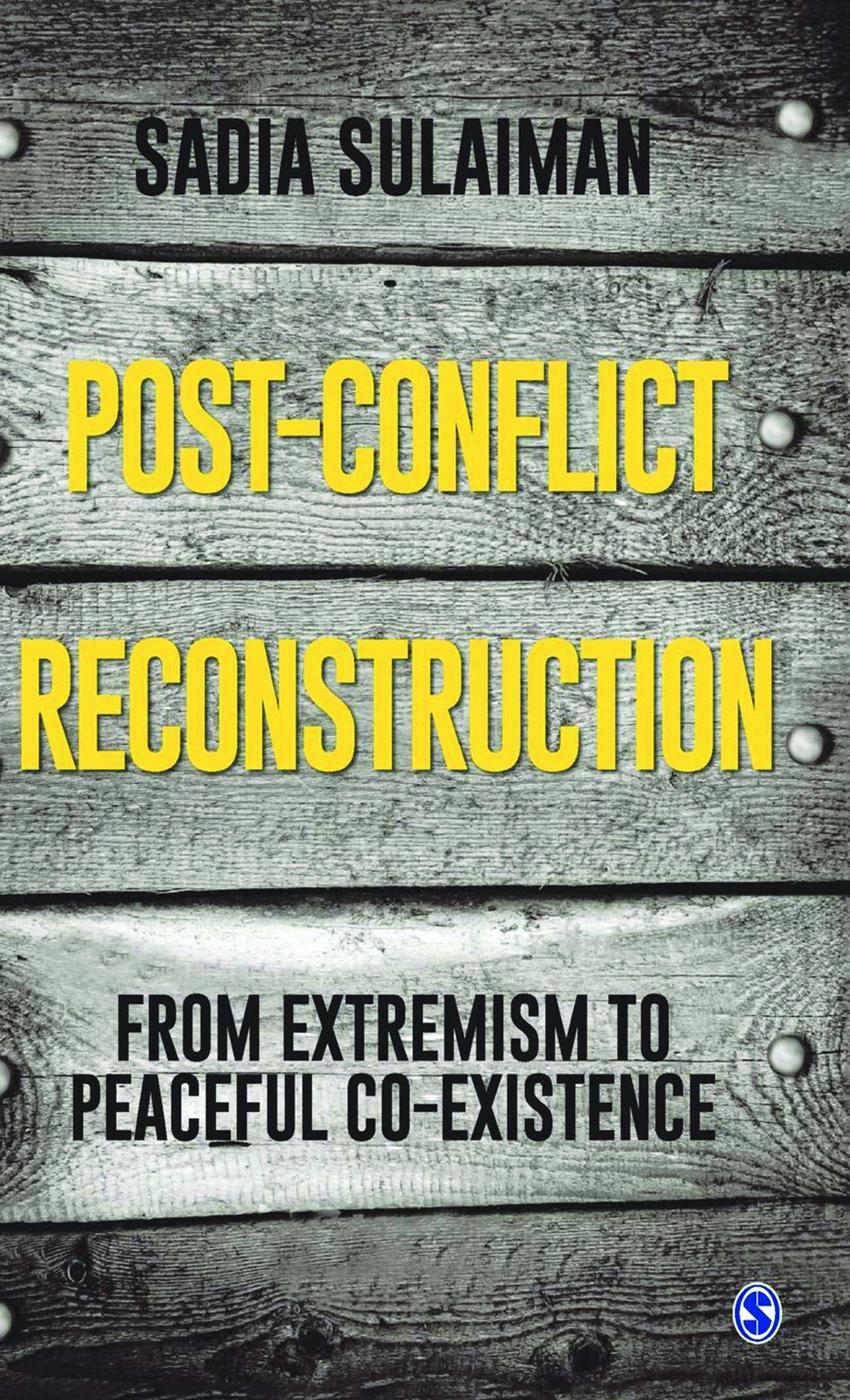Post-Conflict Reconstruction: From Extremism to Peaceful Co-Existence puts under the lens the principal causes of state fragility which creates an enabling environment for violent religious extremism. The author takes up six case studies of different countries covering the Asian and African continents to establish a connection between state fragility and religious extremism. Myriad political, security, socio-economic, and miscellaneous factors are addressed. The all-embracing argument of this book is to understand how and why states get trapped into fragility, which in turn provides an enabling environment for violent religious extremism and the subsequent fragile social and political order. State fragility as per the book, ‘a potent reality’, gets further enhanced in a conflict-ridden environment.
The author identifies five core attributes whose presence in any state makes it prone to fragility. These are: persistent security dilemma, dysfunctional economy, institutional weakness and legitimacy crisis, inability to manage change and space for external interference. The concept of state fragility has emerged as a significant challenge for global peace and security because of the spill-over effect attached with it, as fragility in one part of the world may lead to unprecedented security and political fallouts for the rest of the world. The argument has been advanced that fragility has a far greater enabling role in making any state or society prone to extremism. Fragility as an evolutionary process is cleverly manipulated and capitalized by various fringe elements to suit their agenda, thus pushing the states into fragility traps.

